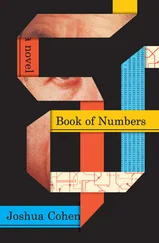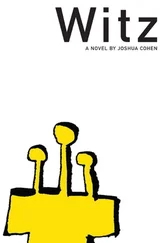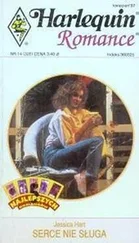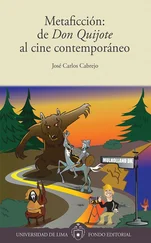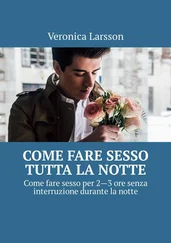Strange — I was always hearing about the no socks whenever I asked about his looks — his toes were long, his feet flat, apparently he was bowlegged.
But I’ve heard other things that conflict.
That despite being baggy—“skin like a paperbag,” said one woman who introduced herself on a streetcorner on my first morning abroad, a girl he’d propositioned at a public pool — he was actually a trifle handsome. He was bald, not bald, balding, with black plastic glasses, with bluetinted metal sunglasses in the aviator style. Prescription, nonprescription. Never with a baseballcap, never without one, glasses resting on the brim, no glasses but a single studly earring. Hanging down from the cap a fringe of grayish white hair like an uneven row of incisors grown from the back of his head.
“The friend” always with a toothpick. “The friend” never with a toothpick. The ladies asking, Who is toothpick?
I’ve also invented a lot, for you, for myself.
After his mother remarried — a soybean farmer — he moved in with his ailing father: Sandusky, then a suburb of Indianapolis, and then New York for two years for film school. His father paid tuition, incidentals.
Imagine, two years of incidentals: Central Park swanboating through springtime afternoons into one night stands with women from the same hall, from adjacent dorms, with divorced faculty who’d loan him keys to Harlem — the next mornings the endless circling for an uncrowded bagel brunch, before a mile of museums to trudge, jamming to gentri-fi in Brooklyn, gentri-lo-fi in Queens, buying skank weed in Washington Square.
And his face was said to be a square, though wrung loose, spongy, and he didn’t shave that often, he didn’t have to — he shaved down there more than he ever shaved more north. When it came down to it, he wore no underwear so that his erection poked its hyperactive contour through the sweats. Jingling testicular pockets stuffed with coin. His cut cock was as hairless as a tongue. And had a tongue’s dimensions when flaccid. When it came down to it, “the friend” had only one language fluently — this speech emerging slickly before the punctuating cash.
Whereas his girls had many languages among them: they spoke Slavics like Catholic Polish, irreligious Czech and Slovak, and Hungarian, which is not Slavic, and Orthodox Ukrainian and Russian, which are.
Moc —which was or is her name, whether it’s a pornonym or not I didn’t know then, I couldn’t have — is a word common to all Slavic languages but with multiple meanings and in not two of those languages does it mean the same thing. In Czech, moc means “extremely,” “very,” or “much,” and in Slovak moc means that too, but it also means (I’ve been told, I have no way to gauge for myself) “might,” or “force,” while in Polish moc means something like “might” as well, though I’ve been told it’s more accurately “strength,” or possibly “power.”
How do I look? they’d ask unclothed, disrobed from solo showers, embedded.
Look good? and, Good, “the friend” would answer from atop her, or from behind the camera if he’d let Yury indulge, Moc good.
Men had used guns and fountainpens previously. They shot hot bullets into the mouth of the enemy or wrote vast scrolling poems to denounce their close friends — and this was how a life was destroyed. Several ounces of dun lead in the skull or O your politics are as ideologically corrupt / as an autumn without pears. And only memory would remain until the last remembrancer, he who squeezed the trigger or wrote the rhyme, had perished himself, his memory gone with him — but then they invented the camera and nothing would be forgotten again.
Moc was then — Describe yourself.
Use your fantasy, your imagination — your sister as model if sister you have.
As blackbrown hair with streaks of blonder dye like the markings of an insecure woodland pest runover by a van on a highway also striped like her hair, eyes bluewhite — but raptured with revelry’s conjunctival bloom in the stills he took for his personal album, the tattered scrapbook “the friend” kept in the glovebox, along with the maps, Yury’s ammunition — just a barrette over 5, converted from the metrics she gave, 105.821 lb. the same.
In her purse was an apple, at bottom the tobacco from a broken cigarette like a crushed finger.
And her phone, stored in it the last number she’d dialed or that had dialed her. (“The friend” kept boxes of new phones in the glovebox too — a new number sometimes each village, sometimes each trip.)
Her wiping up with a towel — having dumped the phone and apple from the purse to locate her lighter — was the last shot in her vid. A light for that comminute cig. Or to spark the mortal kindling around her.
But then the lens fluttered its lashes, blinked its cap — and she wasn’t there, she wasn’t only there:
Moc wasn’t at home anymore, Moc was home already.
Whereas “the friend” lived in the capital. An expiscatory expat who’d recently sunk the bulk of his inheritance from his father’s death back in Indiana (diabetes???) into a gorgeous old palace in the old city center. Wainscot for the halls, bespoke boiseries for the rooms, faux chambres set with arched fireplaces like windows — windows to flame, to hell — pastel friezes arched above the doorways depicting either nobles hunting a stag or a stag running away from a band of men intent on pinning it down, forcing it to admit what it really symbolized — Nature, innocence or freedom, art thou Christ?
The stag ran around and around the rooms, above the doors, insouciantly gallivanting mantels, gamboling sills, threatening to shatter the rosette and tulip moldings, the ceramic tiled stove. The parlor areas — there were perhaps three proper parlors plus two possible bedrooms he also referred to as parlors — he’d left flagrantly unfurnished: windy spaces canvassed with renovation’s remnants, plastering arras, blank tapestries of polymer sheeting.
Even the Master Bedroom, the only bedroom occupied, was bereft — just a sleepingbag strewn small on the floor like a leaf fallen from a crude fresco of trees (eastern wall through northern wall continuous). The bathrooms were highly ceilinged — with a stock of mints in each bidet — the hallways long and, since he didn’t use any of the unreconstructed salons they connected to, utterly pointless. Only parquetry buffing the reflections of chandeliers — and of the screens on every surface: in the Master Bed, the Master Bath, suspended above the elevator doors, screens for screening, for televisionwatching and movies, screens for editing, for web support and maintenance, screens for power failures and backups (hooked to a somniloquent standby generator), screens for screens in banks.
The main entrance to all this flaunted an anteroom entirely empty except for a single tabling entity — a mediumsized chest or toppled armoire cluttered with par avion and torn aspirin packets — that he called the piano though it was, in truth, a harpsichord. He never played it but sat on its stool occasionally and when he looked at the stool and saw, instead, a steeringwheel, he knew it was to time to get moving.
He was hardly at this home, however, and so did most of his living, as he did most of his editing — his editable living — in transit. On the road. Always being driven by that swarthy pard with the spray of sesame seeds across his face — potentially a birth condition — and breath that smelled of “pomace” (according to the dictionary of one interviewee — an evenbanged brunette with diacritic zits who contacted your correspondent about a week after he landed in-country — who gave Yury’s name as I˙lgiz I˙rekovich, said he was partially Tatar and the father of her child).
Читать дальше


